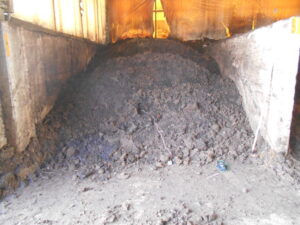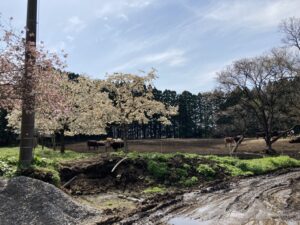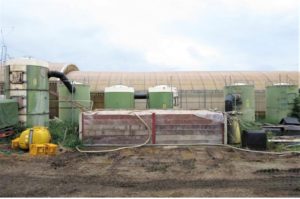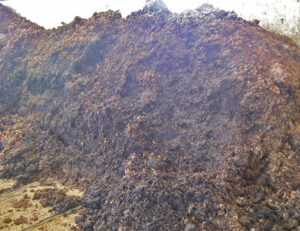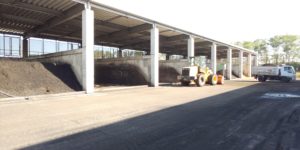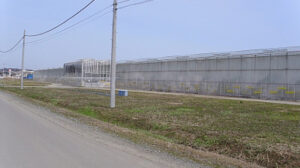Labor-saving composting of swine manure (Client: J Farm)
Here is a case study of a pig farm that solved the problem of reducing the generation of bad odors in consideration of the surrounding environment.
- Products Introduced
- Easy Jet
- Client and Location
- Kanto Region / J Farm
- Processed Material
- Livestock Manure (Approximately 17,000 pigs)
- Issue
- To address concerns about the surrounding environment and reduce unpleasant odor generation.
Overview of Composting at J Farm
J Farm, located in the Kanto region, is a pig farm that ships approximately 17,000 pigs annually.
They decided to introduce Easy Jet to minimize labor, eliminate the need for turning, and reduce unpleasant odors, all while considering the environmental impact.
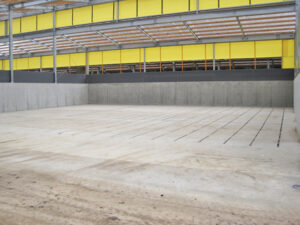
Implemented Measures and Results
| Increased Processing Volume 1 | The construction of an additional composting building allowed for an expansion in processing volume. |
|---|---|
| Increased Processing Volume 2 | The introduction of high-pressure ventilation enabled composting in a shorter period of time than with conventional treatment methods, saving space and increasing throughput. |
| Increased Fermentation Temperature | High-pressure ventilation allowed for maintaining high fermentation temperatures throughout the year. |
| Improved Compost Quality | Providing oxygen throughout the compost ensured improved quality. |
Key Points of Introduction
The key advantages include minimal labor requirements, low cost, and the ability to produce high-quality fertilizer. In particular, this farm has introduced numerous facilities for recycling various biomass resources and is very committed to regional resource circulation activities, making the production of high-quality fertilizer essential for promoting sustainable recycling.
Local government agencies provided various forms of advice and support during the introduction process.
Introduction of “Easy Jet”
The Easy Jet is installed in an area of 450㎡, and the generated pig manure is mixed with rice husks and back compost and deposited on top of the Easy Jet.


Shortly After Piling
The fermentation temperature rises to just under 80 degrees Celsius. After a designated period, the composting process is completed with no need for turning, making fertilizer production highly efficient.

7 Days into Fermentation

Completion of Compost
As fermentation progresses, the compost turns black as shown in the images. The lack of turning helps prevent the spread of unpleasant odors, and by this stage, the internal odor has significantly diminished.
MIRAIE provides support for high-quality compost production. Feel free to consult us if you are interested.

Introduction of the Product
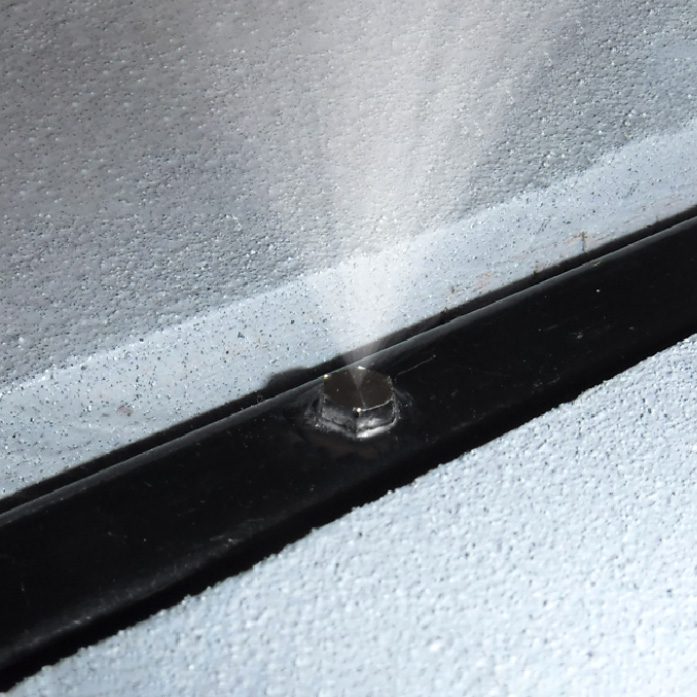
Composting Equipment
Easy Jet
Composting Equipment that requires no turning
A special nozzle supplies oxygen to the inside of the compost, eliminating the need for heavy machinery to turn the compost around. High-temperature fermentation in winter is realized, enabling production of high-quality compost.
writer
CORPORATIONMIRAIE
We are a plant manufacturer specializing in composting and recycling equipment. We provide comprehensive support to customers facing composting and odor issues and strive to strengthen production systems to improve productivity.







 Facebook
Facebook X
X Hatena
Hatena Poket
Poket